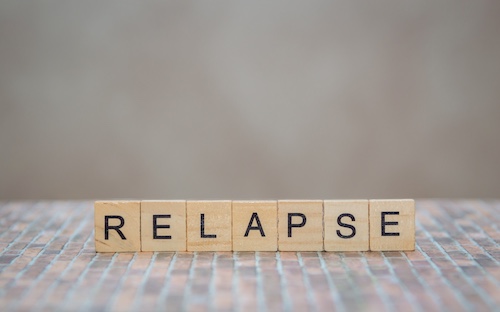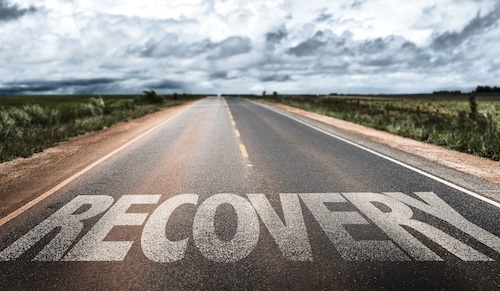Tips On How to Handle Cravings Without Relapsing
Carolina Recovery provides compassionate, evidence-based care for individuals facing substance use disorder and addiction. At our Fayetteville recovery center, we offer structured treatment programs, counseling, group therapy, and holistic support to address both the internal triggers and external triggers of relapse. Our team works closely with each person to build coping skills, boost self-esteem, and promote long-term recovery. We believe in treating the whole person, mind, body, and relationships, to help clients move beyond past substance use toward a healthier life.
Cravings are one of the most difficult challenges in addiction recovery. They can appear suddenly, feel overwhelming, and place individuals at risk of relapse. Learning how to handle cravings without relapsing is essential for both early recovery and long-term recovery. By understanding internal and external triggers, building strong coping skills, and seeking extra support through treatment programs, individuals can manage cravings and protect their well-being. With the right strategies and guidance, it is possible to stay sober and continue moving forward on the recovery journey.
In this blog, we explain how to handle cravings without relapsing, share practical strategies for managing triggers, and highlight the support available at our Fayetteville recovery center to help individuals strengthen their recovery journey.
Understanding Cravings and Triggers
Cravings are a normal part of addiction recovery. They can feel overwhelming, but learning how to identify and respond to them is key to preventing relapse and staying sober.
What Are Cravings?
Cravings are strong urges linked to past substance use. They can appear as physical cravings in the body or as mental urges in the brain. These feelings often come from changes in brain chemistry caused by drugs or alcohol. Cravings may be intense in early recovery, but can appear at any stage of the recovery journey.
Internal Triggers
Internal triggers start from within. They include negative emotions such as stress, anxiety, sadness, anger, or low self-esteem. Fatigue or poor sleep can also create a risk of relapse. When individuals recognize these triggers, they gain the chance to manage cravings before the urge becomes stronger.
External Triggers
External triggers are events or environments outside the individual. Common triggers include people linked to past substance use, places where drug use or alcohol was present, and social settings that feel uncomfortable. Even small reminders of past use can bring back cravings and create high-risk situations.
Why Recognizing Triggers Matters
Paying attention to both internal and external triggers is vital in addiction recovery. Self-awareness helps individuals prepare for potential triggers, reduce the risk of relapse, and protect long-term recovery. By learning coping skills and seeking extra support, people improve their well-being and create a stronger foundation for ongoing recovery.
Practical Strategies for Managing Cravings
Cravings can feel intense, but using clear strategies helps individuals manage cravings and lower the risk of relapse.
Deep Breathing and Mindfulness Techniques
Simple techniques like deep breathing calm the body and reduce stress. Taking deep breaths slows racing thoughts and decreases anxiety. Mindfulness practices such as focusing on the present moment or observing emotions without judgment help individuals feel more in control. These coping skills enhance self-awareness and support long-term recovery.
Distraction and Redirection
Shifting focus is an effective way to handle cravings. Activities such as exercise, hobbies, or calling a loved one provide a healthy outlet when the urge to use substances appears. Distraction gives the brain time to move past the craving and reduces the chance of relapse. Building positive routines creates structure and strengthens ongoing recovery.
Identify Triggers and Make a Plan
Managing cravings starts with identifying triggers. Writing down internal and external triggers allows individuals to see patterns and prepare for high-risk situations. Having a plan for how to respond to potential triggers prevents relapse and supports long-term success. A plan may include calling a support group member, practicing coping skills, or leaving an unsafe environment.
Self-Care and Wellness Habits
Self-care reduces vulnerability to cravings. A balanced diet, good sleep, and regular exercise improve well-being and brain health. These habits lower negative emotions and support personal growth. Strong self-care routines help build self-esteem, making it easier to stay sober during stressful moments.
Support Systems
Cravings feel easier to handle with extra support. Group therapy, support groups, and time with loved ones give encouragement and accountability. Professional help at a recovery center provides structured treatment programs, guidance from a health professional, and holistic approaches to improve coping skills. Support systems give individuals strength for both early recovery and long-term recovery.
Professional Help and Treatment Programs
When cravings feel too strong to manage alone, professional help and structured treatment programs provide the support needed to prevent relapse.
Why Professional Help Matters
Addiction recovery is difficult without guidance. A health professional can help individuals recognize internal and external triggers, manage negative emotions, and build coping skills. Professional care also addresses the physical and mental symptoms that often appear after past substance use. This level of support lowers the risk of relapse and strengthens ongoing recovery.
Treatment Programs and Recovery Tools
Treatment programs provide structure and extra support for individuals struggling with substance use disorder. These programs often include group therapy, support groups, and individual counseling. They also focus on mindfulness techniques, self-care routines, and relapse prevention strategies. Treatment creates a safe environment for personal growth and long-term success.
Our Fayetteville Recovery Center
At our Fayetteville recovery center, individuals receive personalized treatment programs that target both internal triggers and external triggers. Care includes one-on-one therapy with a health professional, access to group therapy, and holistic approaches such as mindfulness and balanced lifestyle planning. The goal is to help individuals build coping skills, improve self-awareness, and reduce the strong desire linked to cravings.
Building a Foundation for Long-Term Recovery
Professional help is not limited to early recovery. Ongoing treatment programs support long-term recovery by addressing potential triggers and reinforcing healthy behavior. With the right support, individuals can improve self-esteem, strengthen well-being, and protect themselves from the risk of relapse. This guidance is essential for staying sober and creating lasting stability.
Preventing Relapse and Supporting Long-Term Recovery
Relapse prevention is a core part of addiction recovery and requires steady focus, consistent support, and healthy coping skills.
Relapse as a Normal Part of Recovery
Cravings and urges are a normal part of recovery. Experiencing them does not mean failure. Recognizing this helps reduce shame and gives individuals the chance to focus on the next step instead of past substance use. Accepting that cravings may return allows people to prepare and respond instead of reacting in high-risk situations.
Building Resilience Against Triggers
Internal and external triggers remain common causes of relapse. Developing self-awareness helps individuals identify potential triggers before they lead to drug or alcohol use. Coping skills such as deep breathing, mindfulness techniques, and calling a support group member give practical ways to manage cravings. Consistent practice creates resilience and lowers the risk of relapse.
Strengthening Support Systems
Support from loved ones, group therapy, and peer recovery communities provides encouragement and accountability. A strong support system offers extra support when cravings feel overwhelming. Staying connected also helps individuals avoid isolation, which can increase negative emotions and low self-esteem.
Focusing on Long-Term Success
Long-term recovery depends on daily habits and ongoing recovery strategies. Self-care, a balanced diet, exercise, and healthy sleep patterns protect mental and physical health. Personal growth through therapy or recovery milestones improves self-esteem and strengthens commitment to staying sober. With steady focus and professional guidance, individuals can create a recovery journey that leads to long-term success.
Get Support for Your Recovery Journey!
If you or a loved one is struggling with cravings or the risk of relapse, our team at Carolina Recovery is here to help. At our Fayetteville recovery center, we provide treatment programs, coping strategies, and professional guidance to support both early recovery and long-term success.
Contact us at (812) 408-8842 for a free consultation today!







